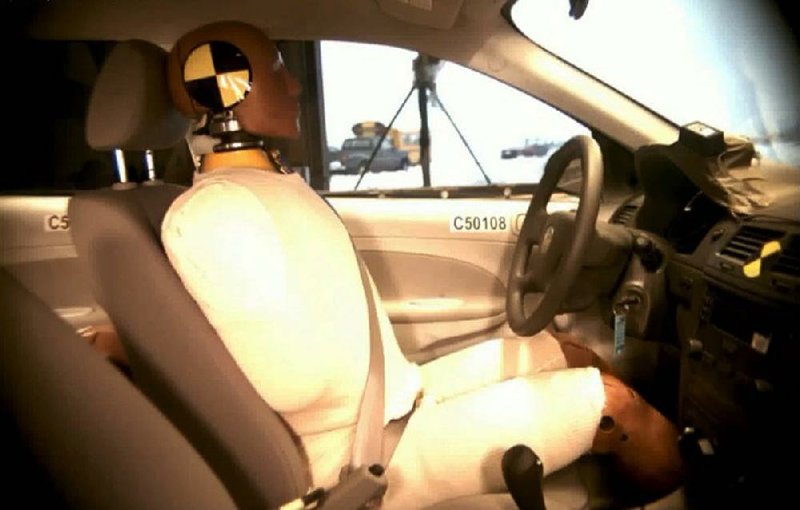WASHINGTON - General Motors Chief Executive Officer Mary Barra plans to tell Congress that she still doesn’t know why it took so long for the automaker to recall 2.6 million vehicles linked to the deaths of 13 people.
“Sitting here today, I cannot tell you why it took years for a safety defect to be announced in that program, but I can tell you that we will find out,” Barra said in remarks prepared for her testimony today before a U.S. House hearing. “When we have answers, we will be fully transparent with you, with our regulators, and with our customers.”
The remarks were posted on the House Energy and Commerce Committee’s website.
Barra, who became CEO in January, is being asked to explain the handling of years of complaints linked to faulty ignition switches in the Chevrolet Cobalt and other cars. The switches, when jostled out of position, led to stalling cars and disabled air bags, GM has said. Lawmakers want to know why GM, though aware of the ignition defects in 2001, didn’t recall the cars earlier.
In her written remarks, Barra reiterated apologies to those people affected by the recall, saying she was “deeply sorry.”
“I would like this committee to know that all of our GM employees and I are determined to set a new standard,” Barra said. “And I am encouraged to say that everyone at GM - up to and including our board of directors - supports this.”
She may be asked to respond to fresh indications that the automaker decided it would be too expensive to fix the flawed ignition switches. After months of studying ignition-switch failures in the Chevrolet Cobalt, GM canceled a proposed change in 2005, when a project engineering manager cited high tooling costs and piece prices, according to documents obtained by U.S. congressional investigators.
GM has recalled about 2.6 million cars after the revelations about the ignition flaw in February. Last week, it added 559,000 trucks and 190,000 Cruze compact cars to the recall for different safety issues, bringing the global total for this year to about 5.1 million vehicles.
Barra, 52, ran GM’s product development before becoming CEO. She has apologized for the slow response that resulted in deaths.
GM has hired an outside investigator to look into the delay and created a vice president position in charge of global-vehicle safety, as Barra has sought to shore up GM’s image and reinforce the automaker’s message that it’s re-creating itself after its taxpayer-funded bailout in 2009.
Still, Washington veterans aren’t likely to forget GM’s bruising fights with regulators and safety advocates such as Ralph Nader. Among the battles, GM has pushed back against claims in the 1990s that its side-saddle gas tanks made pickups vulnerable to explosions and tangled with safety advocates over changes to air bags.
“That’s certainly what’s on the minds of people who have seen these recalls in the past. She’s going to take a beating over that, there isn’t any question about that,” said Chris Malone, a managing partner at Fidelum Partners, who has studied the effects of recalls on brands.
GM’s regulator, the National Highway Traffic Safety Administration, also is expected to come under scrutiny in the congressional hearings.
The agency passed over an opportunity to address the ignition-switch defect in 2007, when it opted not to open a formal defect investigation even after an agency official had said an investigation was justified, according to an interview between current National Highway Traffic Safety Administration officials and staff members of the House Energy and Commerce Committee.
The chief of the safety agency’s Defects Assessment Division sent an email message to other officials in the Office of Defects Investigation in September 2007, saying owner complaints from 2005 and “early warning” data about warranty repairs and injuries justified an investigation, according to the memo from the committee.
“Notwithstanding GM’s indications that they see no specific problem pattern, [Defects Assessment Division] perceives a pattern of non-deployments in these vehicles that does not exist in their peers,” the official said, according to the memo issued before today’s committee hearing.
Business, Pages 23 on 04/01/2014

